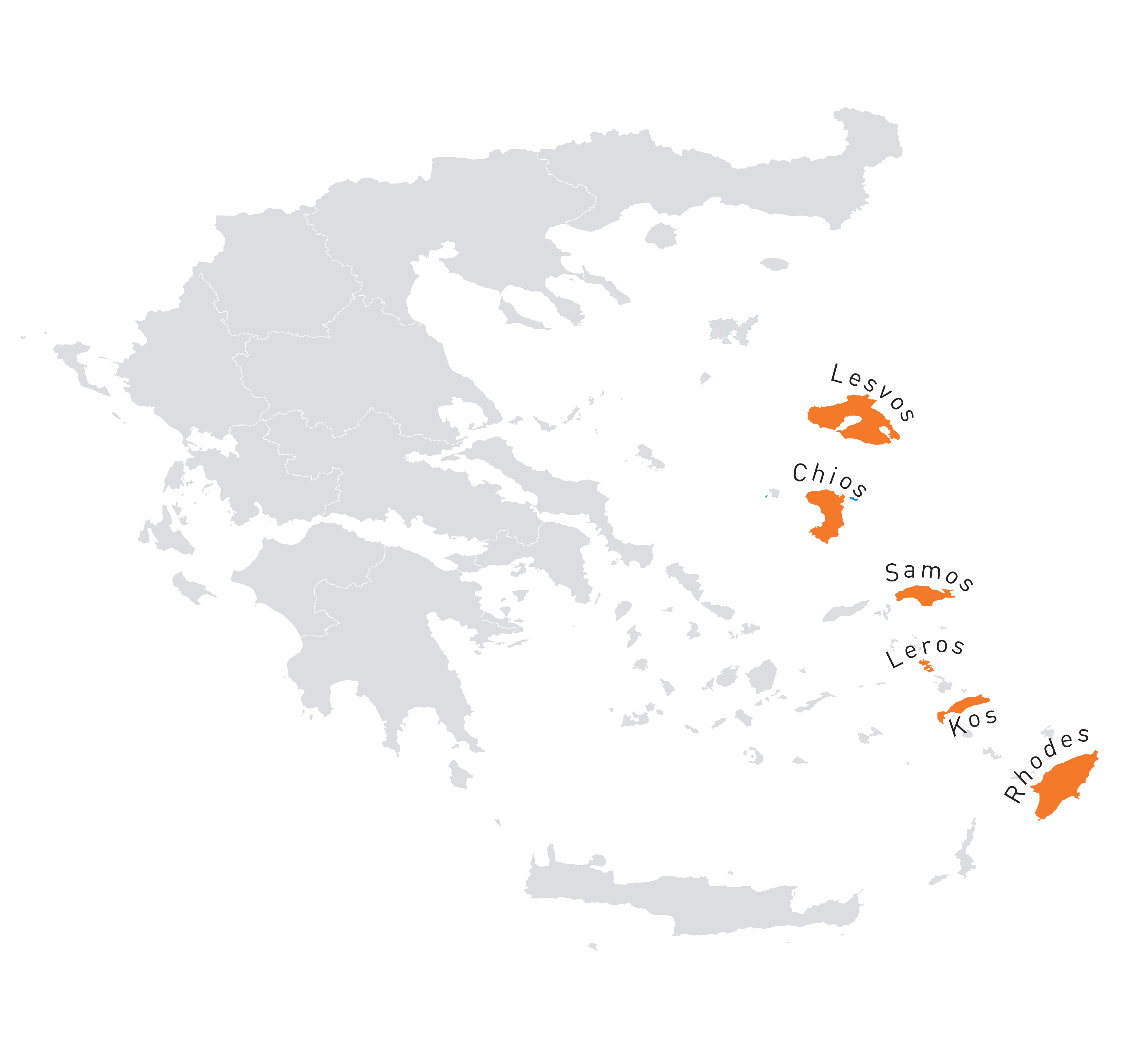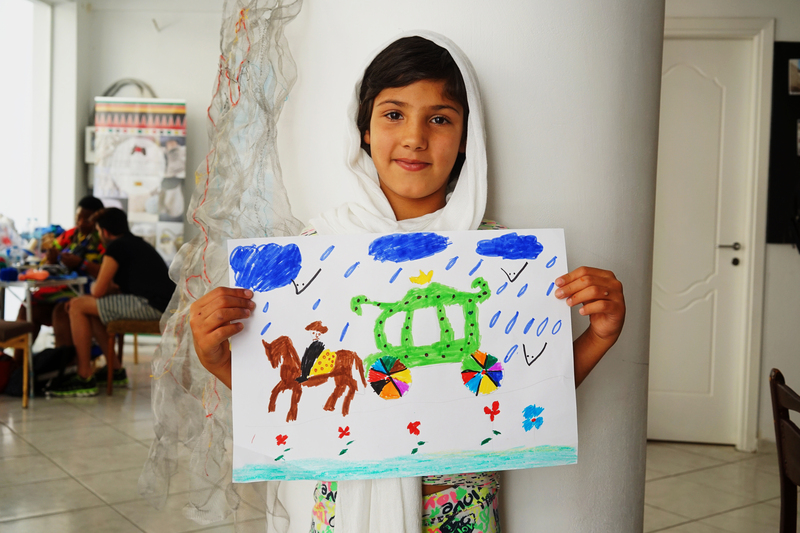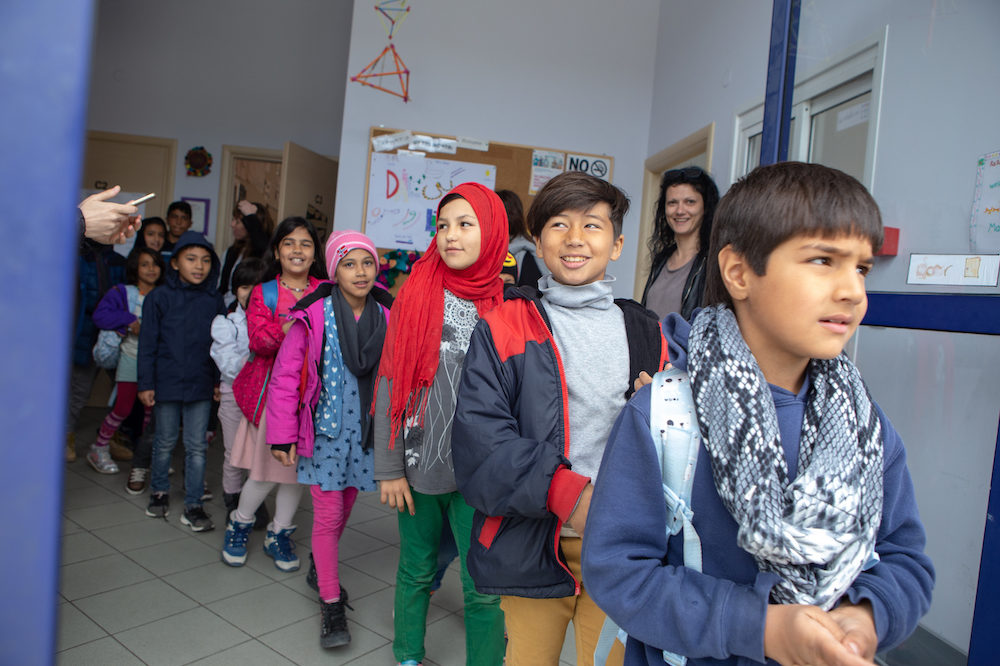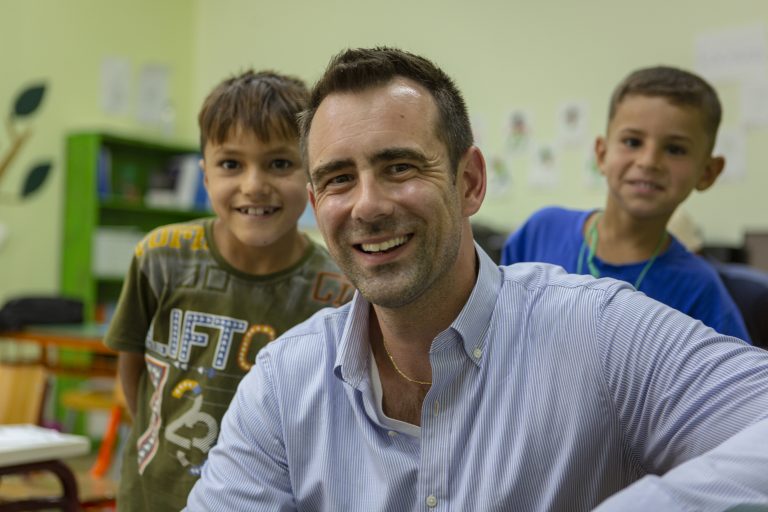Increasing access to education for refugee and asylum seeking children and adolescents in Greece.
ECW in Greece
Fleeing extreme violence and dire conditions in their homeland, many refugees and asylum- seekers now live in camps and centres on the Greek islands. They face major protection, security and health risks due to overcrowding and poor living standards. Moreover, the education of children is under threat with only a small percentage of children attending formal schools. In response, Education Cannot Wait (ECW) worked to increase the capacity of non-formal facilities, support informal classes and train teachers.
Geographical Areas of ECW-funded Interventions

Map Disclaimer
Investments
Financial Information
Results
Additional Results
- Number of asylum-seeker and refugee children reached through national campaign, including targeted messaging, on back to school: 31,800
COVID-19 Results
Programme Info

Greece is host to hundreds of thousands of refugees and asylum-seekers, with many housed at six reception and identification centres: five on the Aegean islands of Chios, Evros, Kos, Leros, Lesvos and Samos. With extreme overcrowding at the centres, refugees and asylum-seekers, especially vulnerable groups such as girls and children with disabilities, face major protection, security and health risks. Children make up about a third of those living at the centres, including thousands who arrived unaccompanied.
Living in these dire conditions, many children have pre-existing psychosocial and mental health issues caused by their exposure to extreme violence, life-threatening experiences, the loss of loved ones and uncertainty about their future. Only a third of the children in the centres on the Aegean islands attend any form of school, and just a couple of a hundred of them attend formal schools. This situation was further exacerbated by the catastrophic fires that destroyed the Moria centre in Lesvos in September 2020 rendering its 12,000 residents homeless.
During 2019–2020, ECW worked with partners to increase access to education for the refugee and asylum-seeking children and adolescents in reception and identification centres. ECW partners worked to increase the capacity of non-formal facilities and support classes in Greek, English and mathematics. Safe spaces were created to support women and girls, and psychosocial support sessions were held to help children process their trauma.
Living in these dire conditions, many children have pre-existing psychosocial and mental health issues caused by their exposure to extreme violence, life-threatening experiences, the loss of loved ones and uncertainty about their future. Only a third of the children in the centres on the Aegean islands attend any form of school, and just a couple of a hundred of them attend formal schools. This situation was further exacerbated by the catastrophic fires that destroyed the Moria centre in Lesvos in September 2020 rendering its 12,000 residents homeless.
During 2019–2020, ECW worked with partners to increase access to education for the refugee and asylum-seeking children and adolescents in reception and identification centres. ECW partners worked to increase the capacity of non-formal facilities and support classes in Greek, English and mathematics. Safe spaces were created to support women and girls, and psychosocial support sessions were held to help children process their trauma.
Programme Components
- Expanding non-formal facilities. In Lesvos, grantees established a new building and rehabilitated another near the Tapuat non-formal education centre to support children living at the Moria centre. In addition, they arranged safe daily transport to and from the centre to improve access.
- Providing learning support to students. Students were provided with English, Greek and mathematics learning materials. Learners also received weekly homework via text and WhatsApp messages and were given written feedback from teachers.
- Supporting children and women with psychosocial support and safe spaces. Grantees held psychosocial support sessions to help children process their trauma. Safe spaces were established to empower women and girls. In these spaces, women were able to breastfeed their babies, access counselling, and obtain guidance on topics such as nutrition and gender-based violence.
- Supporting children with classes and recreational activities. Grantees supported informal classes in Greek, English and mathematics for thousands of refugee children and asylum-seekers who were not in school. Cultural mediators helped those who did not speak Greek nor English. Recreational activities, such as drawing, painting, physical exercise, dance and music, were offered as a way of building children and adolescents’ physical, mental and social skills.
- Training teachers. Grantees trained teachers on topics such as creating inclusive classrooms for refugee children, classroom management, integrating psychosocial support in language classes, participatory and differentiated pedagogies and Greek as a second language.



